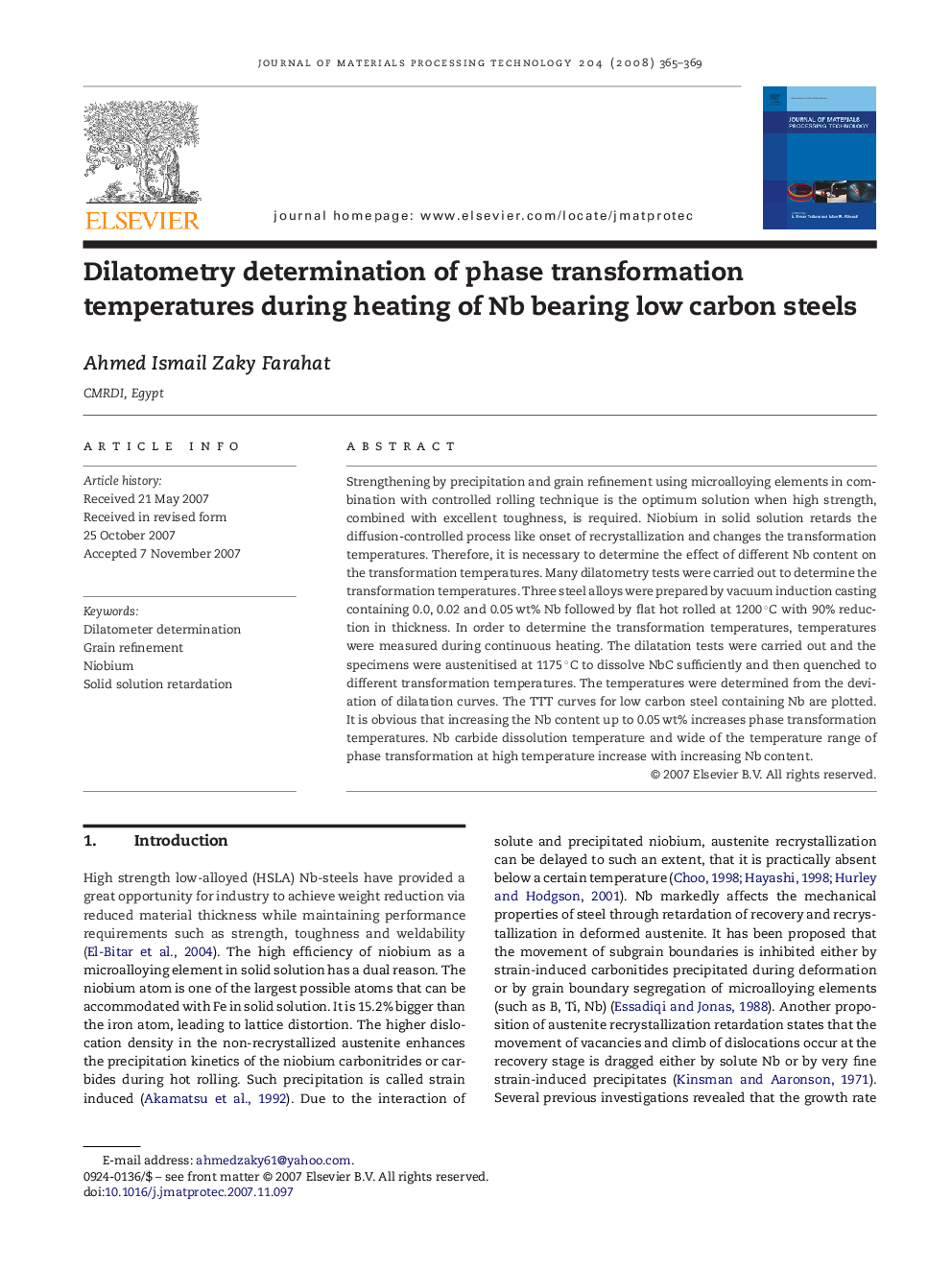| Article ID | Journal | Published Year | Pages | File Type |
|---|---|---|---|---|
| 793707 | Journal of Materials Processing Technology | 2008 | 5 Pages |
Strengthening by precipitation and grain refinement using microalloying elements in combination with controlled rolling technique is the optimum solution when high strength, combined with excellent toughness, is required. Niobium in solid solution retards the diffusion-controlled process like onset of recrystallization and changes the transformation temperatures. Therefore, it is necessary to determine the effect of different Nb content on the transformation temperatures. Many dilatometry tests were carried out to determine the transformation temperatures. Three steel alloys were prepared by vacuum induction casting containing 0.0, 0.02 and 0.05 wt% Nb followed by flat hot rolled at 1200 °C with 90% reduction in thickness. In order to determine the transformation temperatures, temperatures were measured during continuous heating. The dilatation tests were carried out and the specimens were austenitised at 1175 °C to dissolve NbC sufficiently and then quenched to different transformation temperatures. The temperatures were determined from the deviation of dilatation curves. The TTT curves for low carbon steel containing Nb are plotted. It is obvious that increasing the Nb content up to 0.05 wt% increases phase transformation temperatures. Nb carbide dissolution temperature and wide of the temperature range of phase transformation at high temperature increase with increasing Nb content.
